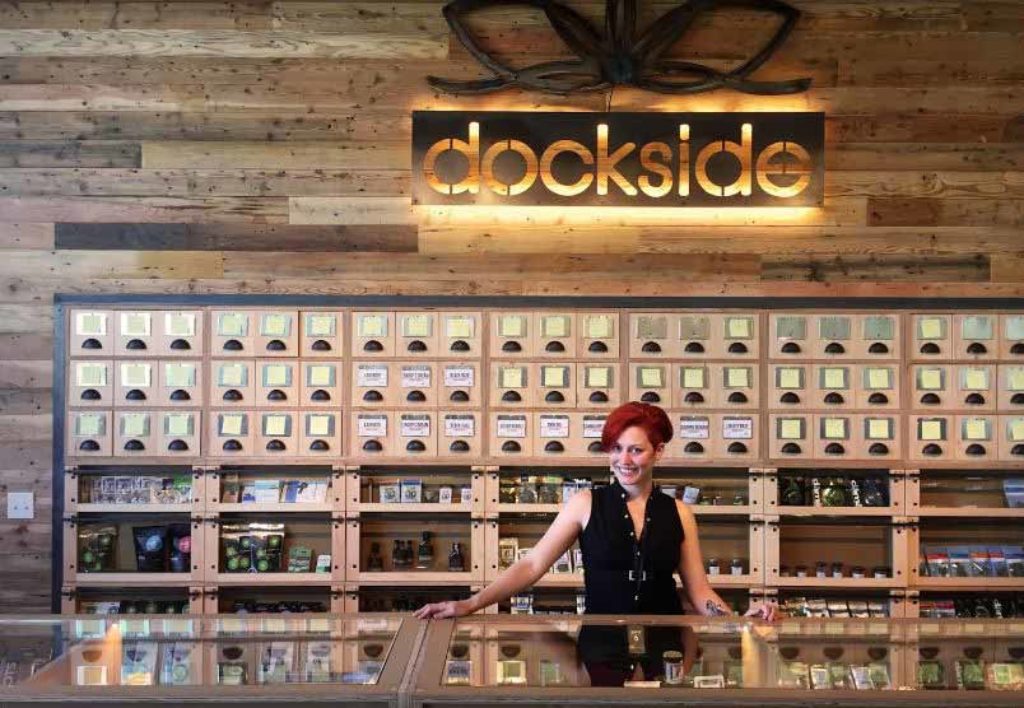
There’s so much going on in the U.S. right now that it’s easy to overlook the big cultural changes taking place, amidst the in-your-face crises with the pandemic, the economy, the climate – you name it.
These days, the marijuana legalization story isn’t getting a whole lot of oxygen. But it’s both a lifestyle and economic gamechanger as both users and investors know.
It turns out pot spending in 2020 actually grew, in spite of the economic headwinds. And because the industry is fertile for both states and municipalities, the business world is expecting huge infusions of cash, not to mention opening legal doors for marijuana investment.
Even though marijuana is technically legal in only part of the U.S., it’s already a $25 billion a year industry. And that’s expected to climb to $37 billion in just three years. More states are expected to fall into line, including New York, Pennsylvania, Connecticut, and Maryland.
A growing industry needs professional guidance. And major talent is coming on board.
Case in point, The Drum’s Kenneth Hein recently wrote about former Coca-Cola CMO Katie Bayne (pictured right). She now sits on the board of Acreage Holdings, a rapidly emerging cannabis company, with former Pfizer chief, Peter Caldini.
Caldini.
They join execs from Hershey, Hostess, and Philip Morris, all of whom have jumped on the marijuana bandwagon.
This sounds nothing like a Cheech & Chong operation. It is all about professionalism and strategy.
Most of these pros see the challenges similarly – a brand new market where the sky’s the limit. And there’s the chance to become the dominant brand in the space, a la McDonald’s or Coca-Cola.
Problem is, there’s already massive competition for this burgeoning business, as more and more well-heeled, smart players jump on board.
It’s not unlike a radio industry loaded with many A-players, along with many low-power FMs and translators. As one marketer noted, a key challenge revolves around brands establishing “why they should pick your product over the hundreds, if not thousands, of other products.” It’s already that competitive.
So, like any B-C challenge, it often comes down to marketing. And as I studied some of the tactics and tenets these execs are already employing, they had a similar ring to several “best practices” we use in marketing successful radio stations.
1. Do your homework – Of course, it starts with conducting research designed to learn more about consumer tastes and expectations, as well as the barriers to entry.
An example is whether “the brand” will be marketed as recreational and fun or one that has medicinal and health attributes. (Clearly, the latter appears to be the smartest approach.)
2. Know your audience – Marijuana marketers are learning customers lean more toward edibles rather than smoking joints. The age segment with the most momentum turns out to be 55+, a demo that is being welcomed by this blooming industry. (OK, not everything matches up well to the ways in which radio operators market their products.)

Gary Allen runs New Frontier Data, an analytics firm that focuses on the cannabis business. While surveying the marketplace, he’s learned that “key customers aren’t stoners.”
Rather than focusing on the Jeff Spicolis, marijuana marketers are leaning toward a more logical and educational approach that can expand the cannabis cume.
In fact, many retail outlets are going for a high-end environment with emphasis on what Acreage refers to as rooted in “education, community, and experience,” rather than building stores that appeal to guys like the Dude.
3. Go local – Katie Bayne says a key to marijuana marketing will be to differentiate brands by going “hyperlocal” as a way to engage customers. Blame it on legislators, but getting local right will be a key to cannabis success.
The need to think local is being largely driven by state and local laws, some of which prohibit the ways in which cannabis is sold and advertised. In other words, know the nuances of your market.
As we know from broadcast radio, it’s the local approach that sets stations apart from Spotify, Sirius, and YouTube.
4. It’s about how the brand makes you feel – Marketers are already learning that brand claims (“More THC!”) are secondary to how the product makes you feel.
Bayne remembers that when marketing Coke, “We focused on moments of uplift.” With radio, of course, we have long talked about similar emotional benefits – mood elevation and companionship among them.
5. Consistency matters – Acreage is at the forefront of delivering on the promise, and doing it with regularity – many of the same elements that contribute to building great radio brands over time.
 Katie Bayne’s core plan for pot has a very similar ring to the ways in which radio researchers and consultants preach success:
Katie Bayne’s core plan for pot has a very similar ring to the ways in which radio researchers and consultants preach success:
“Having a clear, defined premise and promise, delivering it carefully every day, and communicating it in a way that has authenticity.”
She adds that a key ingredient is to “keep up with (consumer) needs, asks, and demands for convenience, for portability, and for enjoyment.”
All of that should have a familiar ring to radio marketers and programmers.
Radio programmers, sellers, and managers should keep close tabs on how cannabis is rolled out, marketed, and managed as the industry makes its way across the American landscape.
As I was doing research on this post, I ran across a quote from the late astronomer, author, and observer of the world around us, Carl Sagan:
“The illegality of cannabis is outrageous, an impediment to full utilization of a drug which helps produce the serenity and insight, sensitivity and fellowship so desperately needed in this increasingly mad and dangerous world.”
Sounds like a sales piece.
- Media And Technology In 2025: Believe It Or Not! - April 18, 2025
- In Radio, You Just Never Know - April 17, 2025
- The Secret To Making A Great Podcast (And Great Radio) - April 16, 2025




Hi, Fred – the latest council we have received through the Michigan Association of Broadcasters has been to stay away from accepting marijuana ads. The rationale is that, while sales are legal under Michigan law, the federal government is not on board, and the FCC would apply federal law if we were to be challenged on the subject. I’m curious what you’re hearing about the legal aspects of accepting such ads. Thanks, and thanks for your blog – I read it regularly!
Todd, thanks for this important update. All the more reason why this is one market, one state at a time. Appreciate you reading our blog.
Once The President decriminalizes federal laws by XO ~ states will have control.
Currently weed profits can’t be deposited in any FDIC institutions.
So, an immediate tax infusion to the feds would occur.
National brands will explode i.e. Snoop, Bob Marley just the start.
They’ll be carried by local dispensaries much like grocery chains and soda.
Btw Fred ~ here’s a sizzle real from a show I hosted in 2015, taped in LA at Universal.
Lifetime had the bid, unfortunately producers ran into various snags.
Plus, the whole news set staging was a bit weird, especially with me as an anchor.
https://youtu.be/CIP9NGsGv8o
Bruce, I had no idea you were a celebrity on the National Marijuana News Network. Thanks for the comment & for including the video.
As an early investor in the cannabis space (in Colorado)….and as a Senior VP of a radio group…I’m fully immersed in the legalities and challenges which marketing of cannabis and its related products present. These challenges DO however open the door for DIGITAL marketing opportunities that radio sellers can present as solutions. Of course…check with your local state broadcaster organizations for the rules of the road which can be laced with landmines.
Its a state by state thing, Biv. Glad to see you’re on top of this trend. Thanks for commenting.
“And the hits just keep on coming!”
Sorry, couldn’t resist.
John, I’m afraid that comment is “one toke over the line.”
I couldn’t either.
California Broadcasters Association and attorneys second Todd’s remarks. We’re surrounded by dispensaries. most of whom have come to us asking to advertise….no sales pitch needed – they see the power o radio but we have to say “no”…turning down bucks in this climate? Ouch !
It’s a lost opportunity, Tom, but it wouldn’t be the first time.
We may look to the Biden administration for action to remedy this situation, I think.
Thanks, John.
And the man in the shirt has just bought a new car from the profit he made on your dreams